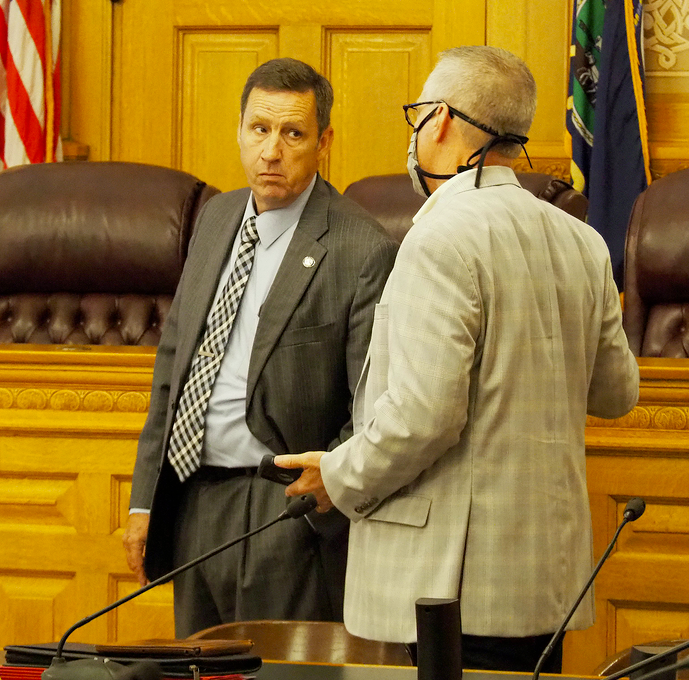
Examination ‘incomplete,’ but exposes transparency shortcomings
By TIM CARPENTER
Kansas Reflector
TOPEKA — School districts, cities and counties in Kansas each invested about $250,000 last year in public tax dollars for deployment of registered lobbyists to influence the state’s political process.
Sixty-three of the state’s 550 registered lobbyists reported receiving public funding from state agencies, local governments or associations tied to government activities. This cadre of lobbyists disclosed this universe of clients bankrolled by taxpayers paid them nearly $1.3 million in tax dollars during 2019.
The Legislature’s division of post audit says the assessment of lobbying with publicly funding was “incomplete” due to limitations of state lobbying law and of requirements to disclose information.
Only registered lobbyists are compelled to report receipt of public funds, which means people performing federal lobbying weren’t included in auditors’ calculations. State employees, judicial staff and advisory council members are exempt from registering as lobbyists, even if they are responsible for promoting or opposing legislative action as a part of their job.
“A fiscal officer for a state agency advocating for their budget at a legislative hearing is lobbying, but does not have to register as a lobbyist,” said Megan Flanders, a senior auditor with Legislative Post Audit. “If a state agency hired an outside contractor to lobby for the agency budget at a legislative hearing, that person would need to register.”
In addition, the audit says “no one has a full picture” of lobbying in Kansas because required reporting doesn’t include spending by state and local governments making use of private funds or donations.
Kansas lobbyists also self-report amounts of public funding they are paid, the audit said. The analysis said 110 of about 1,500 reports required of these Kansas lobbyists weren’t filed by the time auditors poured through documents earlier this year.
“There is no penalty in statute for not filing public funds reports, which makes it difficult to enforce,” Flanders said.
The auditing division also examined the amount of tax dollars spent by state and local governments on fees and dues to professional associations and how much recipients of those payments devoted to lobbying activities.
Although only 936 of 3,800 state and local government entities responded to the auditors’ request for information, the survey found $11 million was spent on fees and dues during the 2019 fiscal year. About $5 million of that total went to associations that lobby to some extent at the state or federal level, auditors concluded.
Sen. Dennis Pyle, the Hiawatha Republican who requested the audit of tax-funded lobbying, said the 25% response rate was disappointing. He also recognized there is no state law requiring agencies, organizations or businesses to respond when contacted by Legislative Post Audit.
“How are we to have confidence in the report?” Pyle said. “There is a question mark.”
In all, 20 associations disclosed receiving more than $100,000 in membership fees and dues during the year assessed.
The auditors said Kansas Association of School Boards, which has a regular lobbying presence at the Capitol, was paid $1.39 million during the 2019 fiscal year by school districts.
Other top recipients of fees that perform lobbying included League of Kansas Municipalities, $656,000; Unified School Administrators of Kansas, $210,000; Education Advisory Board: Education Technology Services, $204,000; Schools for Fair Funding, $201,000; and Kansas Municipal Utilities, $201,000.
Tim Carpenter has reported on Kansas for 35 years. He covered the Capitol for 16 years at the Topeka Capital-Journal and previously worked for the Lawrence Journal-World and United Press International.





